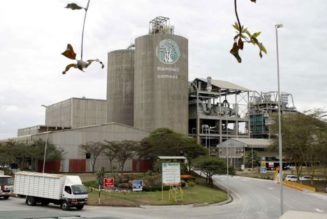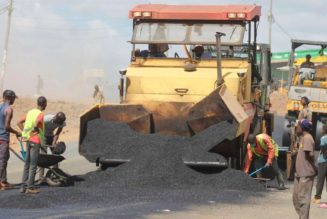Columnists
Where is my food coming from? Traceability concerns growing
Tuesday July 04 2023
Regina Muturi fillS up a bucket with potatoes at the Nyeri town market on February 11, 2022. PHOTO | JOSEPH KANYI | NMG
Normally when we get food on the table, the question that we ignore and yet is important is: Where is this food coming from?
This question is defining new ways in the consumer world which is now being used globally and that is traceability for any agri-product from farm to plate.
A while back, when it was reported that KFC had sourced its potatoes largely from Egypt rather than locally, there was a huge furore among Kenyans on social media.
Nobody stopped to question why such a move and what implications it had on local farmers.
Yet part of the reason may have been linked to the quality of our potatoes, which meant that the supply chain was not transparent.
There was a lack of traceability in the potato supply chain, which had to be addressed.
This was affirmed by a study by the International Livestock Research Institute, which found that a lack of transparency in the Kenyan food supply chain has been a barrier to the adoption of sustainable agricultural practices.
The study recommended that education and awareness should be enhanced among all farmers in Kenya and reiterated the importance of transparency for any food product that is being exported to the global market.
Traceability is the ability to locate and track food products as they move from the farmer all the way to the table of the mwananchi and also should be able to trace the origin of the food product and its movement till it reaches the supper table.
They should also be able to know the stages in order to make things better by suggesting, for example, better ways of packaging, among others.
The consumer will be empowered to check through the window and see how safe their food is. The agribusiness doing value addition on the other hand will assess quality control both towards the farmers and the consumer.
Secondly, traceability will also enhance the efficiency of the entire supply chain.
This is because the farmers, processors and retailers will be able to use the information collected at all stages to make effective decisions with regard to the product.
Thirdly, it reduces food waste and is able to pinpoint exactly where the waste happens in the supply chain. Much of the food waste in Kenya happens at the farm level or during transportation and by identifying these areas, better solutions can be developed.
Currently, in agribusiness, especially in Kenya, transparency has become a challenge because of the fragmented nature of the supply chains.
And also, the fact that there are many people involved in the supply chain makes it hard to trace the origin of the product.
But this can be improved by the use of digital technology and educating the public on its importance and benefits.
Some people might argue that if they have not been harmed by unsafe food before, why should they care now. The answer is that unsafe food can have long-term adverse effects.
A study by the World Health Organization showed that an estimated 600 million people fall ill and 420,000 die every year from eating unsafe and contaminated food, resulting in diseases such as cancer.
The time has come for Mama mbogas and wananchi to pay keen attention and start finding out where their food comes from.
Everything starts with a small step. And the engine of the supply chain to embrace the importance of traceability because it will help reduce cost of food and improve food security. And also enhance the agribusiness markets.
Edwin Obonyo is a PhD student in Operations, Logistics and Supply Chain at Strathmore University Business School









